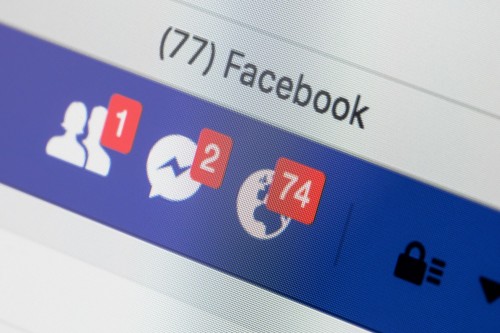 I regularly receive friend requests on Facebook. Most of them I ignore. (And many I report for being spam.)
I regularly receive friend requests on Facebook. Most of them I ignore. (And many I report for being spam.)
But if the person sending the request has a lot of friends in common with me—say a hundred or so—I’ll usually accept the request, because that person is typically also a professional speaker or trainer. (Many times I have met and formed a friendship with another speaker online and later met them in real life.)
So when I accepted a friend request from such a person a couple days after my birthday, I didn’t give it much thought. Until I received a Facebook message from her shortly thereafter:
Happy birthday Don.
How are you?
Trust that you had a great Christmas?
Because it was your special day I would like to send you a free sample of our Anti aging Age I Q night cream or our Prolistic lotion and Probiotic powder plus Vitamins for the winter.
Please let me know what’s your preference, also please send me your email and home address.
Have a fantastic day
This was immediately followed by a second message:
You are welcome. Please watch this video before you start using the products. I will check back with you on Sunday to see whst (sic) you like best.
Both messages were accompanied by links to product videos by the multi-level marketing company she represents.
Now, I’m not opposed to direct marketing companies. (In fact, I’ve done sales training for several.) And I’m not opposed to marketing on Facebook. (It’s a proven marketing strategy.) However, this is not the correct way to do either.
When your first communication to a new connection on Facebook—or LinkedIn or Instagram or any other platform—is a marketing missive, it sends the message that you don’t care about them as a person at all. You just wanted another prospect in your pipeline. That sours the relationship before it even has a chance to begin. For all intents and purposes, it’s spam.
Efforts like this not only won’t increase your sales, they can result in your account being blocked, reported, and even suspended or banned.
If you’re going to market on Facebook—or any other social media platform—learn to do it the right way. Read a book, take an online course, attend a seminar, hire a consultant. (A great place to start is with my friend, Andrea Vahl—one of the world’s leading Facebook marketing experts.)
And always hold yourself—as well as your employees, partners, and yes, independent representatives—to the highest ethical standards. Failure to do so will hurt your company’s reputation and sales.
Facebook is one of the most powerful marketing tools ever created. Just remember that like any other tool, it can be used correctly and incorrectly. And using any tool incorrectly can be dangerous. Don’t risk damaging your brand—learn the proper way to handle your tools before using them.

Leave a comment